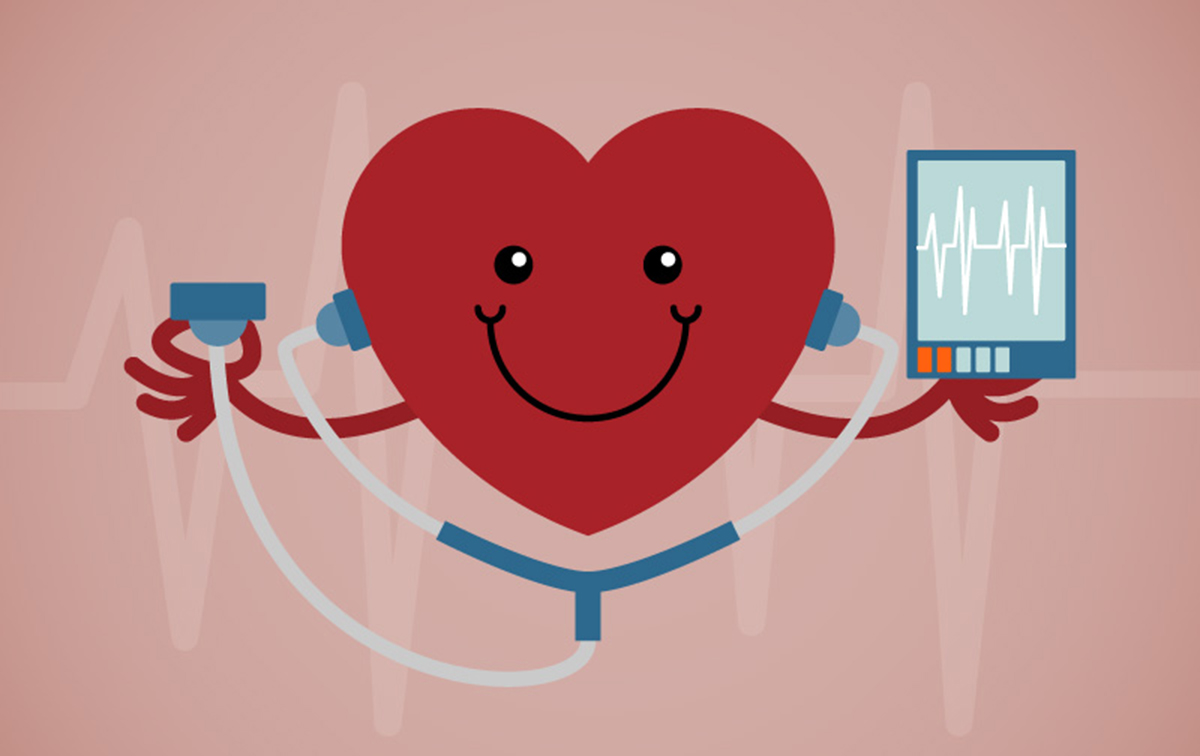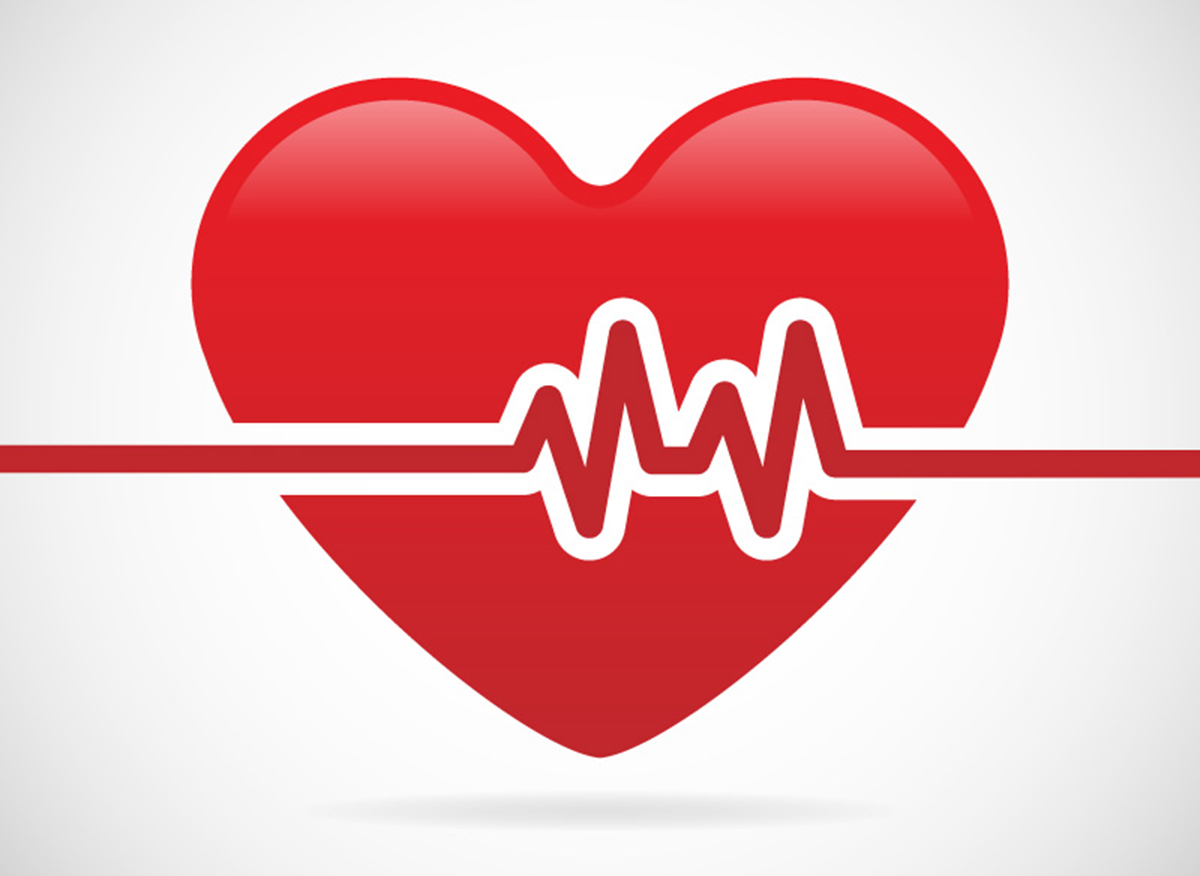New health apps are coming out every day — the list is almost endless and it is hard to find method in this madness. Even in the apparently somber field of cardiology (studies of the heart) there seems to be an app for everything and for everyone. Starting with calorie counters and exercise monitors for the boy next door, to apps that enhance emergency response for communities as a whole, apps that help physicians explain clinical jargon to patients and even aid clinical decision-making by providing a vast amount of information at the 'touch' of your finger, mobile applications are fast becoming hugely relevant to our fragile hearts. While we have reviewed these cardiology apps we've grouped them into those intended to empower patients and caregivers, and those that could make life easier for physicians. All the listed apps are free, so that you can test the waters before diving in.

Top 5 Cardiology Apps For Wider Public Use
Instant Heart Rate
Ticking away inside you
The Instant Heart Rate app developed by Azumio is available free on android and iOS devices. It uses your phone's camera to calculate your pulse rate and allows you to record the pulse along with a note about what you were doing at that time. This app is good to assess how effectively you're exercising and also tells you where you should draw the line. It takes about 10 seconds to make the calculations, but makes it worth the wait.
Some users have complained of false readings. The technology used does not provide 100% accurate readings, but it gives a good approximation, and that is the best you can hope for in a mobile app. While this is a great app to use for exercising and checking pulse at home in healthy people or stable patients, it is best not to rely on it in a medical emergency.
Calorie Counter & Diet Tracker by MyFitnessPal
Healthy body, healthy heart
Lifestyle modification is a big step towards reducing the risk of heart disease. Whether you’ve just been diagnosed with high blood pressure or diabetes, or if you’ve made a resolution to eat healthy and stay fit, it is always helpful to have a calorie counter at hand. This one comes equipped with a barcode scanner, a large food database, and good user feedback. Available on both android and iOS devices for free and quite popular, the Calorie Counter is an easy way to find motivation and ensure that you are actually following the diet your cardiologist has recommended for that high triglyceride level or that menacing blood pressure recording.
The ASCVD Risk Estimator
From the horse's mouth
This app, developed by the American College of Cardiology and the American Heart Association, is equally useful for doctors and patients and unlike the other ACC apps, you do not have to be a member to get access. If you get your blood cholesterol (HDL and LDL) tested, you can use the app to calculate your risk of atherosclerotic and cardiovascular disease, that is risk of heart attacks, stroke, chest pain and related problems. More importantly, it provides users with the latest evidence-based advice on reducing risk and morbidity of heart disease. This includes advice on diet, exercise, weight management, early recognition of symptoms and treatment options. The tool is based on the 2013 ACC/AHA guidelines. It is designed and developed by doctors, is free and available on both android and iOS devices.
READ Tea Drinking Improves Cardiovascular Health
Pulse Point
In case of an emergency
Pulse point is an app that has to be on everyone's cell phone to be effective. Its usefulness relies on widespread usage within the community. The app can be used to raise an alarm and provide life saving assistance to victims of cardiac arrest. It summons the nearest application users who have training in CPR. It locates emergencies on a community map and is intended to make sure help gets there in time. It also tells citizen rescuers where they can find the nearest AED (automated external defibrillator).
The app comes with 911 intel, sending out live notifications about incidents like fires, road traffic accidents and medical emergencies to users in the area. Community coverage can be enabled through initiation by local civic authorities. While there is a lot of praise for the concept, user reviews also complain of technical faults, which developers keep blaming on mash-ups by the civic bodies involved. Despite all of this, user ratings on Google Play are 4.5. Pulse Point has the potential to considerably bring down cardiac fatalities in a community. While organizing workshops for training in CPR (cardiopulmonary resuscitation) and ACLS/BLS (Advanced Cardiac Life Support/Basic Life Support) why not encourage participants to register on the app so that they can put these skills to use in real life situations?
Cardiio
Target in sight
The good thing about the Cardiio – Heart Rate Monitor is that the information you get is not just the dry numbers, but their implications as well. It gives you an endurance score, and compares your heart rate to others' (your friends, famous athletes, people from other countries and so on). It also gives guidance on a standard cardio workout, though if you are a seeing a doctor for heart disease it's best to consult with her/him on which exercises are ideal for you. The app is free but if you buy the pro version it calculates a target age and gender specific heart rate for you. The ratings are good (4.5 on AppStore) and people have specifically mentioned the workout as really helpful.
Top 5 Cardiology Apps For Physicians, Medical Students, And Other Health Professionals
Prognosis : Cardiology
Learn on the go
'Prognosis : Cardiology', the app by Medical Joyworks is your own personal version of Grand Rounds in the palm of your hand. It has a rich collection of 37 typical cardiology cases which are presented using a simple and interactive interface. The app guides you through the different steps of diagnosis, starting from history taking, and moving on to clinical examination, investigations and treatment and finally gives a brief but informative comment on the case.
In a busy schedule, this app is the ideal way to fit in a quick revision, especially for physicians embarking on a specialty training in cardiology and for medical students. It has rave reviews on both Google Play and AppStore, with health professionals going out of the way to say how the app has helped them with its user friendly interface and memory aiding format. Try it out today, not just because its free, but because it really is quite fun. While you're at it you may also take a look at the other Prognosis apps in different specialties.

DrawMD
A picture is worth a thousand words
People are curious beings. They need to know why they are having certain symptoms. They need to understand how your scalpel can help. Its easier to address these questions if you can help them visualize the whole thing. You cannot expect patients to have any background in anatomy, so colourful but simple templates of organ systems can help, especially if you can draw on them to explain pathological changes and surgical interventions. Draw MD provides just that, making doctor-patient communication a lot easier.
Admittedly the iOS app is much faster than the android app because it has different apps for each specialty, but in the latest update Visual Health claims to have sorted out this glitch. Going by user reviews, the iPhone app is much more successful than the android one.
They offer templates across 17 medical specialties, along with stamps which are smaller pictures that can be applied to the template to explain a set of common pathologies and procedures. Beyond that you can always improvise with the pencil tool. Access is free, but if you want to save and share a professional subscription is required. The interface is absolutely no-nonsense and hardly requires any additional attention when you're using it to aid a conversation. Why not give it a go, and see if it brings something extra to your everyday pre-op consultation?
Cardiology Rounds
A place to hang out
That coffee you share with your colleagues at the end of a long day at the hospital, discussing cases, sharing new updates? Guess what, you can now have that all the time, and with more people to add to the fun. The Cardiology Rounds app by Daily Rounds lets you connect with colleagues from all over the world, share cases, toss challenges, quiz each other, and also keep yourself up to date with the latest evidence.
The interface has two components — the rounds and the library. The first is dynamic and gets continually updated. It is trendy and totally random, meaning that you may miss out on some posts if you are not online for long spans. The journal watch gives abstracts from a whole range of research articles. Different cardiology related guidelines are provided for ready consultation. The app is popular among junior doctors, specially cardiology residents, and is available for free on AppStore and Google play.
READ Cardiovascular Health And Noise Pollution
HeartEvidence Pro
Adding Confidence To Decision Making
HeartEvidence Pro by JungHeum Park is an app to watch out for. The interface is neat and professional. Information related to clinical trials sorted by disease and management is presented in a highly organized and uniform format. Each trial is given in several subheadings — date, format, treatment group, control group, inclusion and exclusion criteria and of course, the conclusion. Having all this information handy is a massive help in clinical decision making, adding confidence by providing up to date evidence anywhere, any time.
The app is available in the AppStore for iOS 7.1 and above. It is free (so don't get confused by the 'pro'). If the reviews are to be believed, users are in raptures. While there are other apps providing data on trials, a definite bonus about this one is that it covers a major spectrum of cardiology topics instead of sticking to just a specific one.
ECG Books
Training the eye to see
The ECG Books app by Yu Yang houses a set of 44 ‘books’, each describing a specific heart condition. Each book contains ECG recordings for 12 cases of that condition accompanied by a concise description of the pathology, diagnosis and management. The app is available free on iOS devices with in-app devices which open up more live ECG recordings. It is great for quick consultation, practice and review. The developers seem committed to expanding the database with each update.
This concludes our ten app long list on cardiology or heart related health. While you're busy looking up these apps we'll be putting together other lists like this one to follow shortly. Stay tuned.
- Photo courtesy of freepik.com


Your thoughts on this